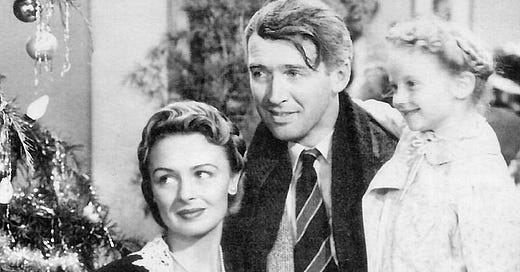"It's a Wonderul Life" Again?
Frank Capra's Lessons for Christians and for Our World
I guess I don’t have to introduce my readers to It’s a Wonderful Life, which you’ve probably seen many times. It’s become a Christmas staple on television, and what some people called “Capra-corn,” for the sentiments of its director, Frank Capra, has a powerful appeal, though if you’re not in the mood for it, you may be as sour and surly as the bartend…
Keep reading with a 7-day free trial
Subscribe to Word & Song by Anthony Esolen to keep reading this post and get 7 days of free access to the full post archives.



